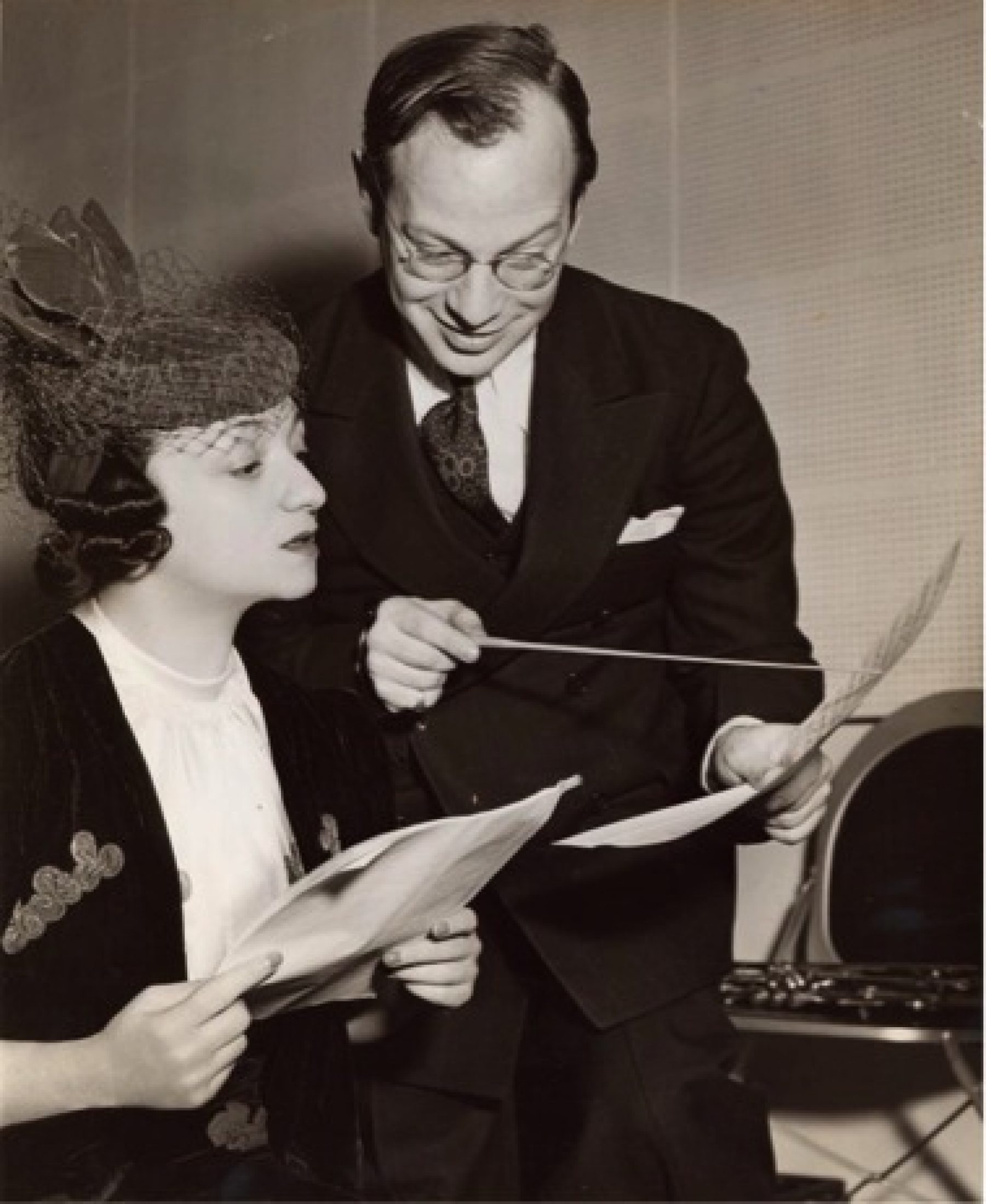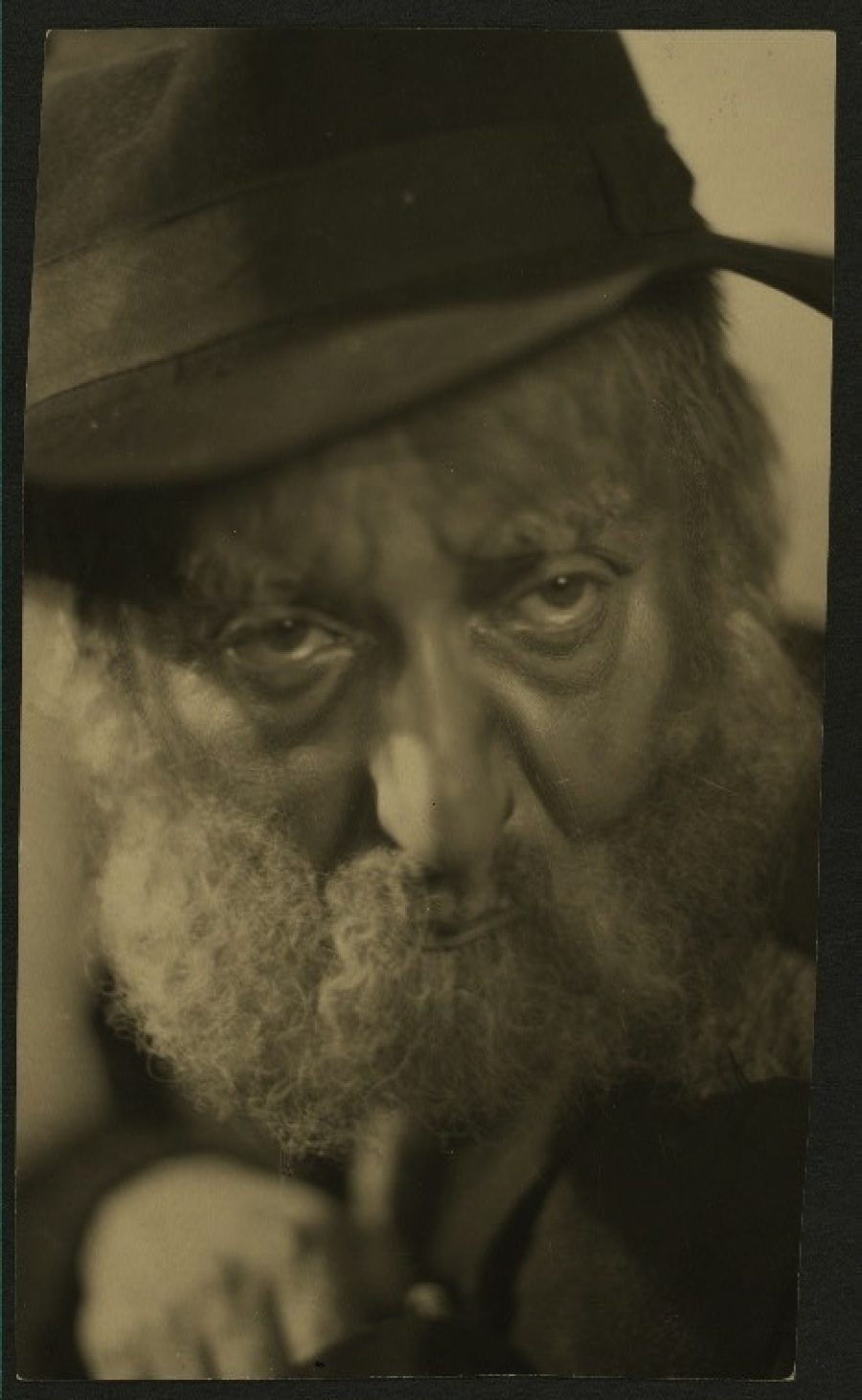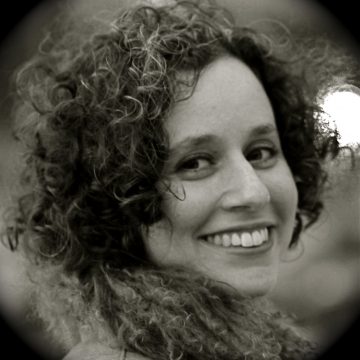
Actress/Lyricist Molly Picon and Composer Abe Ellstein both wrote songs with Stutchkoff.
Billy Rose Theatre Collection, New York Public Library of the Performing Arts.
Matzah and Melodrama: Nahum Stutchkoff’s Yiddish Song Lyrics
Amanda (Miryem-Khaye) Seigel
Nahum Stutchkoff (1893-1965) was a beloved Yiddish radio personality, playwright, lyricist and linguist who created dramas and commercials for WEVD radio and compiled a Yiddish rhyming dictionary and thesaurus. Once a household name among New York Yiddish speakers, he even appeared in ads for Beech-Nut Gum, Seagram’s Whiskey, and Planter’s High Hat Peanut Oil.
Before his radio days, Stutchkoff worked as a translator, actor, playwright and lyricist.
He began by translating plays in various European languages into Yiddish, and later wrote his own. More than 20 of his (unpublished) plays were performed in America, including titles like “Oy, Amerike!” (Oy, America!), “Di ganevte” (The Lady Thief) and “Ven Blinde Libn” (When Blind People Love). Many of these playscripts survive in his extensive archives in the Dorot Jewish Division, New York Public Library, and in the Library of Congress.
The most absurd lyrics?
In the late 1920’s and early 1930’s, Stutchkoff’s lyrics were published in sheet music composed by Sholom Secunda, Joseph Rumshinsky, Abe Ellstein, and Phillip Laskowsky. The lyrics appeared in transliteration in the music, with a separate Yiddish text of the original. A far cry from today’s standard Yiddish, the transliterations were, like many of their day, frequently riddled with typos and inconsistencies. These texts provide a fascinating look at Yiddish dialect and pronunciation, the use of English in Yiddish, and creative rhymes.

Actress/Lyricist Molly Picon and Composer Abe Ellstein both wrote songs with Stutchkoff.
Billy Rose Theatre Collection, New York Public Library of the Performing Arts.
One of his biggest hits was “In mayne oygen biztu shehn” (In my eyes you are beautiful), with lyrics co-written by Molly Picon and music by Joseph Rumshinsky. Picon (as “Sadie”) and Leon Gold (as “Michail”) sang this duet in “Ganeyvishe libe”, (“The Love Thief”), Rumshinsky and Jacob Kalich’s “underground operetta” by Benjamin Ressler, performed at Molly Picon’s Folks Theater, 12th Street and 2nd Avenue in 1931.
The New York Times reviewed the show on January 19, 1931, noting that the “sprightly” Picon “would blithely sing with the utmost seriousness the most absurd lyrics.” The chorus included phrases like:
In mayne oygn bistu sheyn, sheyn vi di velt
Ikh ze in dir nit keyn khesorn, ales mir gefelt
Meg farrisn zayn bay dir dos ne[y]zele
Megstu hobn seykhl vi an eyzele
In mayne oygn bistu sheyn, sheyn vi di velt
In my eyes you are as beautiful as the world
I see no flaw in you, I like everything
You may have a dirty nose
You may have the sense of a donkey
In my eyes you are as beautiful as the world
The song’s melody was later used for the WEVD radio theme song - you can hear a parody of it in this documentary from the Yiddish Radio Project.

Ludwig Satz Billy Rose Theatre Collection, New York Public Library of the Performing Arts
Another popular song with lyrics by Stutchkoff and music by Abe Ellstein came from Stutchkoff’s 1929 operetta with the same name, “Az der rebe vil” (If the rabbi wants to). Ludwig Satz, a well-known Yiddish actor, recorded this comical song on “Ludwig Satz at the Yiddish Theatre, Volume 2,” describing a wonder rabbi who performs ridiculous miracles, such as turning a duck into a tomcat. NYPL has the original play script for “Az der rebe vil” (without music) and Jane Peppler recently published sheet music and recorded the song based on her research with the Itzik Zhelonek collection.
“Brivelekh” (Letters) was another song featuring Stutchkoff’s lyrics, with music by Sholom Secunda, from the play “Shtief Shvester” (Stepsisters) by Louis Freiman, performed at the Rolland Theatre in Brooklyn in 1931. Here, Yiddish tragedienne Jennie Goldstein sang of a heartbroken, abandoned lover who finds comfort in her old love letters. Stutchkoff honed his talent for melodrama with programs like “Bay tate-mames tish” (“Around the family table”), a stage play and long-running radio show sponsored by the B. Manischewitz Matzo Co. NYPL’s Performing Arts Library even has a few surviving recordings of the show.
Speaking of Manischewitz, who could forget Stutchkoff’s famous Manischewitz Matzo jingle, where the matzah is “always fresh and always crunchy and snaps on your teeth”? This popular song was composed by Sholom Secunda, Stutchkoff’s predecessor on the Jewish Children’s Hour, and sung by the talented young participants on WLTH radio. According to Henry Sapoznik of the Yiddish Radio Project, Stutchkoff was famous for his amazingly descriptive commercials for matzo, among other products, and you can find some on their website.
In recent years, Stutchkoff’s work has found a new audience through the award-winning Yiddish Radio Project, and through adaptations presented at The New York Public Library, National Yiddish Theatre-Folksbiene and the New Yiddish Rep Theater.
In 2014, the Forward Association (former owner of WEVD radio) published a collection of linguistic radio episodes, “Mame-Loshn” (mother tongue) edited by Leyzer Burko, based on NYPL’s Stutchkoff archives. It quickly became a Yiddish bestseller.
Further Reading:
- Nahum Stutchkoff exhibit - Yiddish Radio Project
- Nahum Stutchkoff’s Yiddish Play and Radio Scripts in the Dorot Jewish Division, New York Public Library. Amanda Seigel. Judaica Librarianship, vol. 16
- Mame-Loshn, by Nahum Stutchkoff, edited by Leyzer Burko (in Yiddish)
- The Stations That Spoke Your Language: Radio and the Yiddish-American Cultural Renaissance (Library of Congress Symposium Proceedings)
© The New York Public Library
